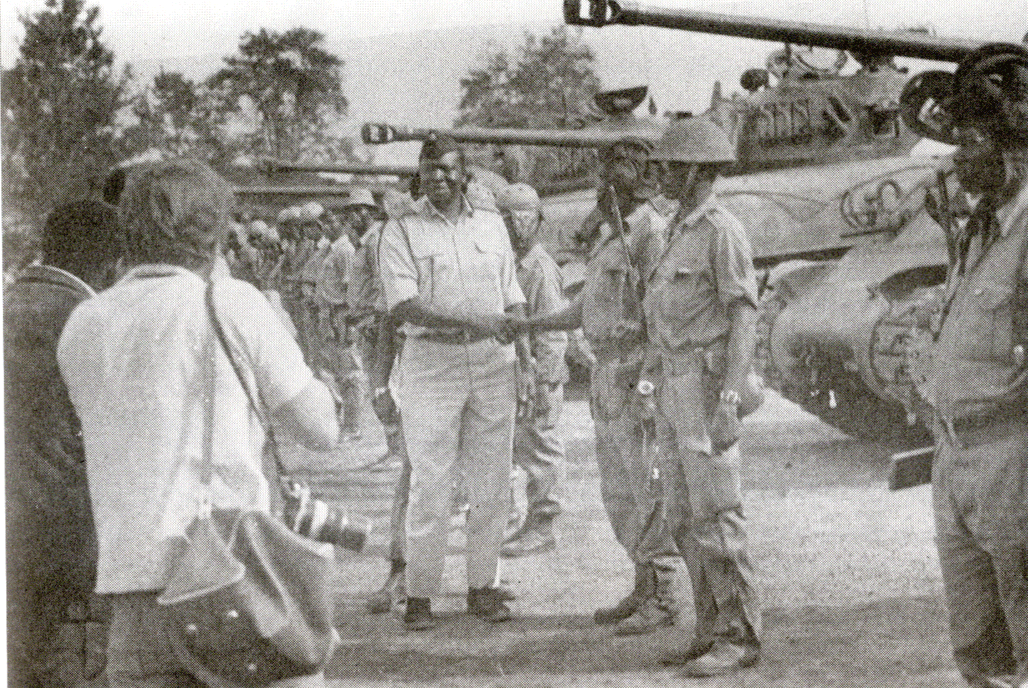Prime
Amin promotes non-commissioned officer, gives them key govt positions

Former president Idi Amin (centre) inspects Uganda Army troops in the 1970s. PHOTO/ FILE
What you need to know:
- In a press statement, then president di Amin said the Defence Council appointed non-commissioned officers (NCOs) as general managers in government companies to fight corruption.
Former president Idi Amin believed that one way to check corruption, especially in public offices, was to appoint soldiers as ministers in Cabinet, in the Uganda Police Force and as directors in government organisations.
ALSO READ: Why Idi Amin went but also stayed
While Amin did not achieve 100 per cent success in the war against corruption, it has long been argued by historians that corruption could have been at its lowest during Amin’s regime as compared to other governments in post-independent Uganda. Amin used decrees and soldiers to curb corruption.
Amin promotes non-commissioned officers
On February 10, 1975, president Amin promoted four Uganda Army (UA) non-commissioned officers (NCOs) to Captains and appointed them general managers of government agencies.
Being promoted from NCO to Captain meant the soldiers skipped several ranks. The four soldiers were from the Malire Mechanised Reconnaissance Regiment stationed at Lubiri barracks in Kampala.
They were Warrant Officer Class II Grads Angallo, Warrant Officer Class II Alai Rubbe, Staff Sergeant Stephen Galla and Sergeant Vincent Malila. The promotions and appointments were announced at Nakasero State Lodge in Kampala.
In a press statement, Amin said the reason the Defence Council appointed soldiers as general managers in government companies was to fight corruption.
Although the statement did not mention the four promoted soldiers, Monitor was able to find records indicating that Captains Galla and Malila were appointed general managers in the People’s Transport Corporation and Uganda Transport Company respectively.
The statement reveals that during the meeting, Amin commended the Governor of Central Province, Capt Abdul Nasur, for what he was doing to stamp out corruption and other evils in the province and said Nasur had proved to be one of the best governors in the country.
“The Defence Council is very grateful to him [Nasur] for what he is doing,” the statement reads.
“Members of the Uganda armed forces are determined to eradicate corruption and stealing because it is their duty to serve the public and ensure that no one is cheated.”
The statement also said the four promoted soldiers would show a good example to the public, adding that it was just the beginning.
“More officers and non-commissioned officers in the Uganda armed forces will be appointed to help government in stamping out corruption and stealing,” the statement says, adding that before taking up their new positions, the new appointees would be briefed by the responsible ministers and staff of the Institute of Public Administration.
Model replicated
In the same spirit of fighting corruption, current President Yoweri Museveni has over the years deployed soldiers in influential positions in government ostensibly to avert or fight corruption and increase efficiency.
In January, President Museveni stunned many when he elevated a non-commissioned officer Tom Magambo to Major and appointed him to head a police department.
Magambo was appointed director of the Criminal Investigations Department (CID). For about 20 years, Magambo had served in the Internal Security Organisation (ISO) as an intelligence officer.
However, unlike the four NCOs Amin elevated, Magambo was a university graduate said to be pursuing a PhD in mediation and conflict resolution.
Army ranks
British army ranks from
lowest to most senior
Private
Non-commissioned officers (NCOs)
Lance Corporal
Corporal
Sergeant
Company Sergeant Major
Regimental Sergeant Major
Commissioned officers
Second Lieutenant
Lieutenant
Captain
Major
Lieutenant Colonel
Colonel
Brigadier
Major General
Lieutenant General
General
Field Marshal




